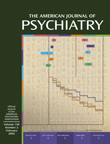Pain is a dominant subject in the national debate over proper medical care. Different schools of thought have presented convincing data supporting the belief that pain treatment is either excessive, inadequate, or both. There are marked differences of opinion as to the appropriate roles of psychiatry and psychology. The ethical pursuit of proper pain management leads to endless possibilities and vagaries. There is a public outcry over inappropriate uses of pain medication.
The chapter authors engage in a much more limited endeavor. They attempt to organize and assess the available data on psychological testing of people with pain. There is a major focus on examining patients through “structured interviews” and psychological tests to try to predict how patients will respond to different treatments. Psychological tests are explored, with major emphasis on the MMPI, its evolution to MMPI-2, and how the findings of the “conversion V” and the “neurotic triad” contribute to our understanding. A variety of other psychological tests are assessed, including those specific and nonspecific for pain. There is a brief but effective chapter titled “Psychoanalytic Ideas” that focuses on Freud, Szasz, and Engel.
There are chapters on the mythic conundrum of normality and disease “to draw a distinction between normal personality structure and psychopathology.” One hopes that such studies would define normality, that “an individual’s interpersonal, experiential, and enduring emotional world consists of a set of basic dimensions.” From this information, several “coping styles” are elucidated and susceptibilities are explored. Other chapters define character disorders and axis I diagnoses and their relationship to causation or cure, along with important possibilities as to further research. Behavioral and cognitive therapies are interwoven as possible interventions. Considerable leeway for individual variation is afforded. There is acknowledgment of the confounding paradoxical riddles of what works and which comes first, depression or pain. Genetic, cultural, and gender variations bear scrutiny. Ultimately, “diagnosis is of little value if it does not guide treatment decisions.” Cure is the goal, an idea certainly resisted by many.
The editors efficiently organize the general state of knowledge available on the subject. They are generally understated, with the goal of “First do no harm.” There is some reference to religion. There is little direct comment on the idea of someone getting well for someone else, an idea that may be central to pain. There seems to be avoidance of labeling, which I found disagreeable. Call things as they are. There is little said about collaborative efforts in treatment, which is interesting in the light of current pressures to turn pain treatment over to “pain specialists,” who may use generic approaches with little interest in psychology, character structure, or coping skills. The result is a thoughtful, contained, modest, but effective compilation of the current state of information in an important area likely to become more so in the future. Pain is likely to be an increasing problem with an aggrieved and aging population and decreasing resources.

